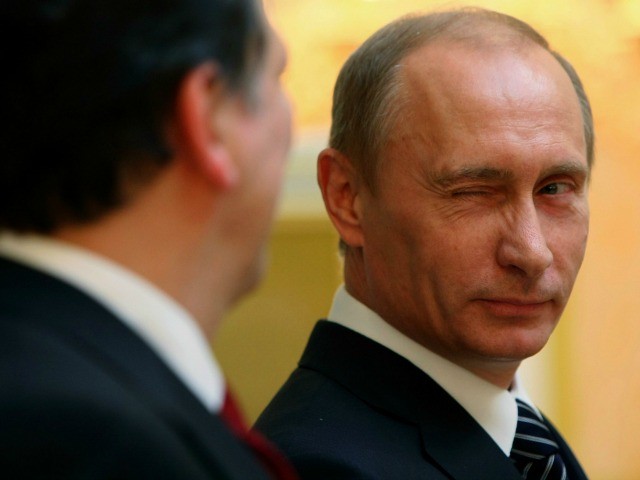On CNN, Fareed Zakaria interviewed Princeton and NYU professor Stephen Cohen about his article in The Nation this week in which he argues that Vladamir Putin is not the “neo-imperialist thug” he is accused of being.
Asked about Putin’s invasion of the Ukraine, Cohen said that Putin did not create the crisis and had no choice but to react. Cohen also said that next to Mikhail Gorbachev and possibly Boris Yeltsin, Putin was the least authoritarian Russian ruler in 400 years. The transcript of the interview follows:
Zakaria: Steve, you say that this guy is not the rank imperialist and rank dictator we see him as. Explain why he isn’t those things.
Cohen: Nor is he, as Secretary Albright and Professor Brzezinski suggested, “Hitler,” with their references to Munich. Putin is not a thug; he’s not a neo-Soviet imperialist who’s trying to recreate the Soviet Union; he’s not even anti-American. What he is is intensely, historically pro-Russian. He’s been in power fourteen years, and his mission is, as he sees it, and many Russians see it, [to] restore Russia from the disaster of 1991, the collapse of the Russian state. Remember, that was the second time in the 20th century the Russian state had collapsed, the first time in 1917. So to recreate the stability, prosperity, greatness, whatever that means in Russia at home, and in the process, restore Russia’s traditional zones of national security on its borders; that means Ukraine as well. He did not create this Ukrainian crisis; it was imposed on him, and he had no choice but to react. That’s [unintelligible] today.
Zakaria: You say he’s actually one of the most liberal rulers of Russia in its history.
Coehn: I wouldn’t put it that way, I mean, I wouldn’t use the word liberal. What I would say is if we view Putin in the context of the last 400 years of Russian history, with the exception of Gorbachev and possibly the first post-Soviet president Yeltsin, though there’s an argument there, Putin is the least authoritarian – let’s call him the most “soft” authoritarian, of Russian rulers in centuries. And by the way, in so far as it matters, because Jews, and the status of Jews in Russia, is often a barometer of how Russia rulership treats its society, Putin has been better for Russian Jews than any in Russian history, and if you want evidence of that, just ask Israel.
Zakaria: What about the new imperialism? Why should it be taken as a given that Russia should send troops into parts of Georgia, into parts of Ukraine, every time it feels it has been adversely affected? That does seem neo-imperialist, no?
Cohen: Fareed, we could argue this for hours. We could do the analogy. What if suddenly, Russian power showed up in Canada and Mexico, and provinces of Canada and Mexico said they were going to join Putin’s Eurasian economic union and maybe even his military bloc? Surely the American president would have to react as forcefully as Putin has.
I don’t think if Canada wanted to start a trade relationship with Russia – I do not believe that the American president would want to send troops into Canada. But if it was a trade relationship that excluded preferential trade with the United States, it would certainly create a crisis.
But let’s get back to Ukraine. Brzezinski and Albright said, for example, that the current government in Kiev is legitimate. Putin says it’s not legitimate. I would argue that if you had on your show a panel of constitutional international lawyers, they would be hard-put to explain how a government which a week ago overthrew the entire Ukrainian constitutional order, deposed the elected president and has been passing anti-Russian legislation in Kiev, and which is at least partially controlled by very extremist forces in the streets, is legitimate. That would be hard to explain.

COMMENTS
Please let us know if you're having issues with commenting.